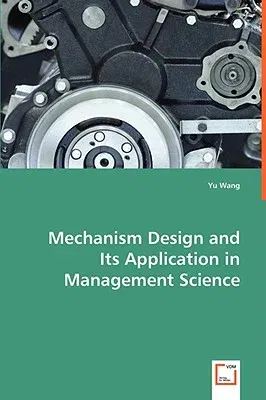Yu Wang
(Author)Mechanism Design and Its Application in Management SciencePaperback, 29 July 2008

Qty
1
Turbo
Ships in 2 - 3 days
In Stock
Free Delivery
Cash on Delivery
15 Days
Free Returns
Secure Checkout
Print Length
96 pages
Language
English
Publisher
VDM Verlag Dr. Mueller E.K.
Date Published
29 Jul 2008
ISBN-10
3836486415
ISBN-13
9783836486415
Description
Product Details
Author:
Book Format:
Paperback
Country of Origin:
US
Date Published:
29 July 2008
Dimensions:
22.86 x
15.24 x
0.51 cm
ISBN-10:
3836486415
ISBN-13:
9783836486415
Language:
English
Location:
Saarbrucken
Pages:
96
Publisher:
Weight:
140.61 gm

